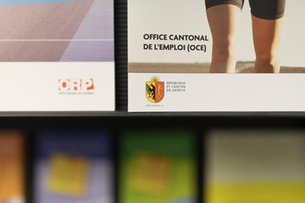Swiss unemployment services have been dealing with more and more older people. - Click to enlarge Switzerland is facing a medium-term future of labour market shortages and ratcheting pension costs, according to the latest economic outlook report by UBS bank. The quarterly appraisal,external link launched Thursday in Zurich, highlighted a paradox in the current shape of the Swiss labour market. Firstly, more and more older people have entered the job market in recent decades: since 1990, the report said, the number of over-55-year-olds in the workforce has increased by 10 percent, while three-quarters of 55 to 64-year-olds are now ‘active’. However, although this is welcome, in 2016 alone, according to the State
Topics:
Swissinfo.ch considers the following as important: Featured, newslettersent, Swiss Markets and News, Work
This could be interesting, too:
RIA Team writes The Importance of Emergency Funds in Retirement Planning
Nachrichten Ticker - www.finanzen.ch writes Gesetzesvorschlag in Arizona: Wird Bitcoin bald zur Staatsreserve?
Nachrichten Ticker - www.finanzen.ch writes So bewegen sich Bitcoin & Co. heute
Nachrichten Ticker - www.finanzen.ch writes Aktueller Marktbericht zu Bitcoin & Co.
Switzerland is facing a medium-term future of labour market shortages and ratcheting pension costs, according to the latest economic outlook report by UBS bank.
The quarterly appraisal,external link launched Thursday in Zurich, highlighted a paradox in the current shape of the Swiss labour market.
Firstly, more and more older people have entered the job market in recent decades: since 1990, the report said, the number of over-55-year-olds in the workforce has increased by 10 percent, while three-quarters of 55 to 64-year-olds are now ‘active’.
However, although this is welcome, in 2016 alone, according to the State Secretariat for Economic Affairs (SECO), the jobless rate for older workers rose from 0.8 to 2.7%. Re-integrating work is also notably difficult for this age group.
And when they’re gone? UBS predicts that within the space of a decade 690,000 baby-boomers will leave the workforce, and if current demographic trends continue they will not be replaced.
The country faces a labour shortage of up to half a million people, the bank forecasts, with resulting pressures severely affection the pension system.
More flexibility
One solution that is often raised is more immigration to fill the shortages: however, Veronica Weisser, a senior UBS economist and co-author of the report, reckons that this is not enough.
If migration was reduced by half compared with the average of the past decade, her models show, the labour shortage could reach 460,000 “full-time equivalents”. Even if politicians can agree to keep migration at the same level, the total shortage would remain around 220,000.
The report rather tends to recommend a lengthening of the productive life-span. For this, it says, more efforts are needed to re-integrate older jobless and to make the prospect of post-retirement working more attractive.
Such measures might include a progressive reduction of working hours in the lead up to retirement. This is part of a so-called “rainbow career” concept, which would see employees taking a step back from mid career onwards, for example: accepting salary cuts, less responsibility and changes to their job profile.
The report also suggests ideas such as the sharing of single part-time roles between an older and younger worker, as well as more flexible contracts that could include further education and training.
Shorter-term, the bank’s forecasts were steadier. It predicts a growth rate of 1.6% for 2018, as well as an uptick in the inflation rate towards 1.9%. Unemployment should drop from 3.3% to 3.2% by the end of this year, the bank predicted.
Not convinced
But employers’ unions are not so convinced by the ideas, especially over the “rainbow career” concept. The chief economist of the Swiss Federation of Trade Unionsexternal link, Daniel Lampart, said that working hours were already being reduced in lots of places for the over 50s. He told the Tages-Anzeiger newspaperexternal link that it was implied that the salaries of older workers would keep increasing – this was wrong, he said. “The fact is that from 50 to 55 years old, salaries hardly rise at all,” he was quoted as saying.
Karin Oberlin, head of careers advice at the Swiss Association of Commercial Employeesexternal link,warned against putting people from a certain age in the same boat. It’s not age that is important, but whether the person is in the right position, she said. Employees who have been in a company for a long time without any career development would be most at risk of no longer fulfilling job requirements, added Oberlin.
But Fredy Greuter, spokesman for the Swiss Employers’ Associationexternal link, had a different view. The concept of the “rainbow career” should be understood as part of efforts for developing “several valid career models and options” and to get away from “the previous career planning which aimed to reach the peak at 65”, he told the newspaper.
Tags: Featured,newslettersent,Work

